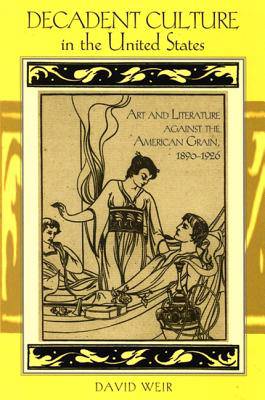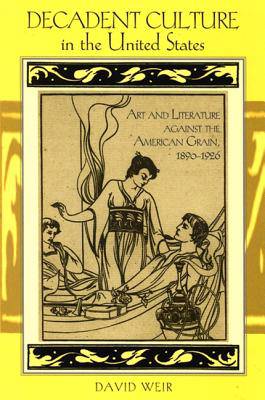
- Afhalen na 1 uur in een winkel met voorraad
- Gratis thuislevering in België vanaf € 30
- Ruim aanbod met 7 miljoen producten
- Afhalen na 1 uur in een winkel met voorraad
- Gratis thuislevering in België vanaf € 30
- Ruim aanbod met 7 miljoen producten
Decadent Culture in the United States
Art and Literature Against the American Grain, 1890-1926
David WeirOmschrijving
The paradoxes of the American decadent movement in the 1890s and 1920s.
Decadent Culture in the United States traces the development of the decadent movement in America from its beginnings in the 1890s to its brief revival in the 1920s. During the fin de siècle, many Americans felt the nation had entered a period of decline since the frontier had ended and the country's "manifest destiny" seemed to be fulfilled. Decadence-the cultural response to national decline and individual degeneracy so familiar in nineteenth-century Europe-was thus taken up by groups of artists and writers in major American cities such as New York, Boston, Chicago, and San Francisco. Noting that the capitalist, commercial context of America provided possibilities for the entrance of decadence into popular culture to a degree that simply did not occur in Europe, David Weir argues that American-style decadence was driven by a dual impulse: away from popular culture for ideological reasons, yet toward popular culture for economic reasons. By going against the grain of dominant social and cultural trends, American writers produced a native variant of Continental Decadence that eventually dissipated "upward" into the rising leisure class and "downward" into popular, commercial culture.
Specificaties
Betrokkenen
- Auteur(s):
- Uitgeverij:
Inhoud
- Aantal bladzijden:
- 256
- Taal:
- Engels
- Reeks:
Eigenschappen
- Productcode (EAN):
- 9780791472774
- Verschijningsdatum:
- 8/11/2007
- Uitvoering:
- Hardcover
- Formaat:
- Genaaid
- Afmetingen:
- 168 mm x 235 mm
- Gewicht:
- 480 g

Alleen bij Standaard Boekhandel
Beoordelingen
We publiceren alleen reviews die voldoen aan de voorwaarden voor reviews. Bekijk onze voorwaarden voor reviews.











